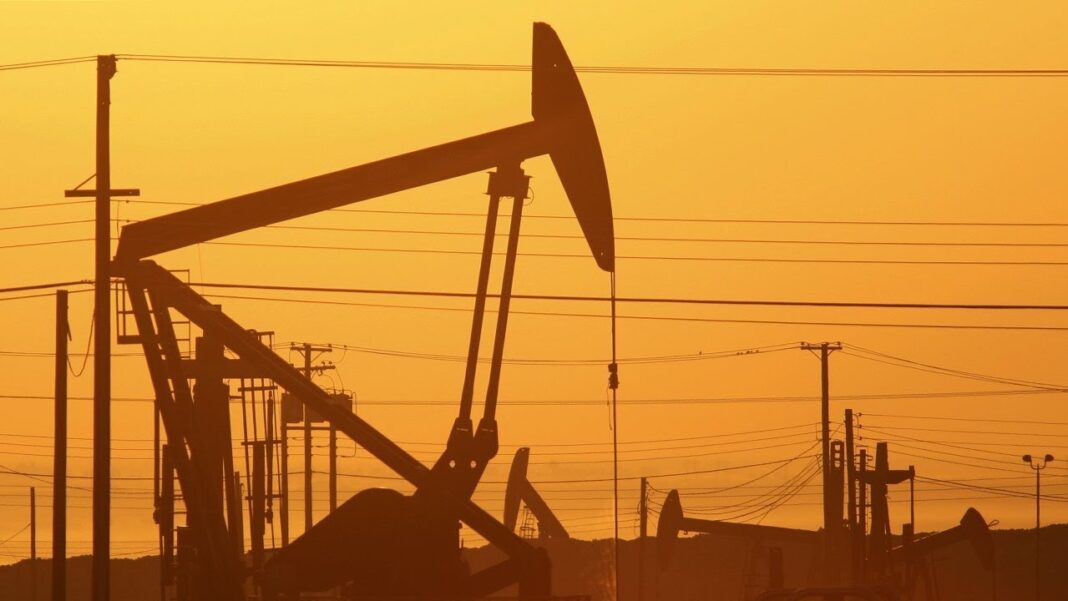
KEY TAKEAWAYS
- American energy producers have been punching above their weight, making the U.S. the largest producer of oil and natural gas in the world in less than a decade.
- Biden has made it very clear that his administration intends to put coal, oil, and perhaps even the natural gas industries in America out of business.
- Biden needs to reevaluate, reprioritize, and unleash the American energy sector—for the benefit of America and the world.
American energy producers have been punching above their weight, making the U.S. the largest producer of oil and natural gas in the world in less than a decade—with one major caveat.
But the good news first.
Take liquid natural gas for starters. In October 2021, LNG exporters in the U.S. were operating beyond capacity. And the U.S. Energy Information Administration expects the U.S. will export 16% more natural gas in 2022 than last year as American companies bring on more production and export capacity.
By the end of 2022, the U.S. will have the largest LNG export capacity in the world with the completion of the Sabine Pass and Calcasieu Pass facilities in Louisiana as well as upgrades to increase production at several existing facilities.
An eighth export facility in Texas is expected to come online by 2024, and the Federal Energy Regulatory Commission has approved several other projects that are not yet under construction.
Now, take a look at oil. In 2020—and even through the worst of the pandemic into 2021—U.S. producers of crude oil and petroleum products made the U.S. a net exporter for the first time since 1949.
The U.S. is the world’s single largest producer of crude oil, even as global demand has outpaced supply over the last year and has strained global markets. The Energy Information Administration cautiously projects crude oil production in the U.S. to continue growing to meet that demand over the next few years.
It’s hard to overstate how revolutionary the American energy boom has been since its onset in the late 2000s. In less than a decade, the U.S. went from projections of energy shortages to being the largest producer of oil and natural gas in the world.
Congress’ 2015 lifting of the ban on oil and gas exports turned the U.S. from a bench sitter into a major global supplier that diversified energy markets. By 2020, American companies supplied 16% of the world’s oil and 21% of its natural gas—more than any other country. And the Energy Information Administration expects U.S. energy production in 2023 to beat the record-setting year of 2019.
The implications of this are very positive for Americans and our friends and allies around the world.
Americans’ average total energy costs fell by 5% from 2018 to 2019, and per capita energy costs decreased in every state except California. Thanks to robust domestic energy production, Americans today are more protected when global energy prices go up.
Canada recently announced its decision to ban crude oil imports from Russia—a symbolically important but easy decision because American energy has displaced its crude oil imports from Russia.
U.S. energy providers have also filled the gap for Europe, which has been caught dangerously flat-footed and import-reliant on Russia after years of policy choices to curtail their own energy production. U.S. natural gas exports to Europe have increased since 2017, supplying 26% of Europe’s liquid natural gas in 2021 and more than half in January 2022 in response to Russia’s weaponization of energy markets.
The Energy Policy Research Foundation estimates that the flood of American natural gas into global markets has kept prices in check and saved Europe $143.2 billion over the last 13 years.
The Caveat
Here’s the caveat, though: This tremendous level of energy production is happening because it’s being done on private and state lands—and despite the Biden administration’s anti-energy posture.
Over the last year, President Joe Biden has directed federal regulatory agencies to implement policies that have severely constrained the energy resources that meet 79% of Americans’ total energy needs and fuel over 90% of transportation in the U.S. In other words, policies that are in direct conflict with the interests and well-being of the American people.
While asking American energy companies for short-term increases in production to bail the administration out of political trouble, Biden has made it very clear that his administration intends to put coal, oil, and perhaps even the natural gas industries in America out of business. This is a caveat that’s been noted in so many of the Energy Information Administration’s energy projections for the future.
In addition to regulations that make it harder and more expensive to produce and use conventional energy, the administration has hung its hat on a very narrow approach to innovation. The White House has advocated sapping the American economy of hundreds of billions of dollars in tax favors and spending hundreds of billions more on a narrow set of politically preferred, unproven energy technologies that the administration presumes are the solution to global warming.
In reality, this isn’t pro-growth innovation policy. It’s not even climate policy. This is old-fashioned political cronyism.
As Europe has experienced, such a foolhardy approach comes with incredible financial costs to taxpayers, political vulnerabilities, and deep concerns about the reliability and stability of the energy supply. It’s also not based in reality: Such a command-and-control approach has not worked in the past, and it’s likely not to work in the future. This is especially true given that Biden’s own Energy Information Administration projects no scenario in which global demand for oil and natural gas does not increase through at least 2050.
In regions of the world where bad actors like Russia use energy as a weapon, the benefits of American-produced energy extend far beyond the economic gains. Unlike Russia, American energy companies are not a mere extension of the government. They offer more choice through transparent, competitive, and reliable energy resources, markets, and contracts. America’s economic freedom has created this environment and it is one of its greatest selling points.
It’s time to fight authoritarianism with energy freedom. Instead of continuing to put obstacles in its way, Biden needs to reevaluate, reprioritize, and unleash the American energy sector—for the benefit of America and the world.
By Katie Tubb
Senior Policy Analyst
Read Full Article on Heritage.org
About Katie Tubb
Katie Tubb is a senior policy analyst for energy and environmental issues in the Thomas A. Roe Institute for Economic Policy Studies.






